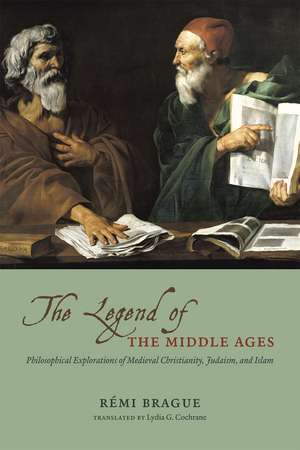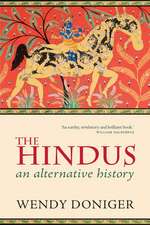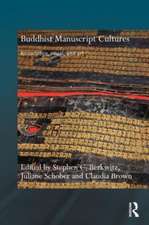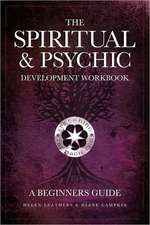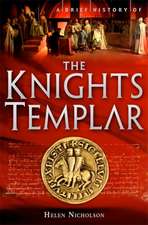The Legend of the Middle Ages: Philosophical Explorations of Medieval Christianity, Judaism, and Islam
Autor Rémi Brague Traducere de Lydia G. Cochraneen Limba Engleză Paperback – 30 mar 2011
| Toate formatele și edițiile | Preț | Express |
|---|---|---|
| Paperback (1) | 253.06 lei 6-8 săpt. | |
| University of Chicago Press – 30 mar 2011 | 253.06 lei 6-8 săpt. | |
| Hardback (1) | 584.30 lei 6-8 săpt. | |
| University of Chicago Press – 15 apr 2009 | 584.30 lei 6-8 săpt. |
Preț: 253.06 lei
Nou
Puncte Express: 380
Preț estimativ în valută:
48.44€ • 52.63$ • 40.71£
48.44€ • 52.63$ • 40.71£
Carte tipărită la comandă
Livrare economică 21 aprilie-05 mai
Preluare comenzi: 021 569.72.76
Specificații
ISBN-13: 9780226070810
ISBN-10: 0226070816
Pagini: 304
Dimensiuni: 152 x 229 x 23 mm
Greutate: 0.4 kg
Editura: University of Chicago Press
Colecția University of Chicago Press
ISBN-10: 0226070816
Pagini: 304
Dimensiuni: 152 x 229 x 23 mm
Greutate: 0.4 kg
Editura: University of Chicago Press
Colecția University of Chicago Press
Notă biografică
Rémi Brague is professor of philosophy at the Université Paris I Panthéon-Sorbonne and at the University of Munich. He is the author of nine other books, including The Law of God and The Wisdom of the World, both published by the University of Chicago Press. Lydia G. Cochrane has translated numerous books for the University of Chicago Press.
Cuprins
Preface
Translator’s Note
Interview
PART I GENERALITIES
1 The Lessons of the Middle Ages
2 The Meaning and Value of Philosophy in the Three Medieval Cultures
3 Just How Is Islamic Philosophy Islamic?
PART II COMMON THEMES
4 Is Physics Interesting? Some Responses from Late Antiquity and the Middle Ages
5 The Flesh: A Medieval Model of Subjectivity
6 The Denial of Humanity: On the Judgment “These People Are Not Men” in Some Ancient and Medieval Texts
PART III COMPARISONS
7 Three Muslim Views of the Christian City
8 The Jihad of the Philosophers
PART IV FILIATIONS
9 Inclusion and Digestion: Two Models of Cultural Appropriation, in Response to a Question of Hans-Georg Gadamer (Tübingen, September 3, 1996)
10 The Interpreter: Reflections on Arabic Translations
11 The Entry of Aristotle in Europe: The Arab Intermediary
12 The Extra-European Sources of Philosophic Europe
PART V PRICKED BALLOONS
13 Some Mediterranean Myths
14 Was There Any Dialogue between Religions in the Middle Ages?
15 Geocentrism as the Humiliation of Man
16 Was Averroes a “Good Guy”?
Appendix: Original Texts
Notes
Translator’s Note
Interview
PART I GENERALITIES
1 The Lessons of the Middle Ages
2 The Meaning and Value of Philosophy in the Three Medieval Cultures
3 Just How Is Islamic Philosophy Islamic?
PART II COMMON THEMES
4 Is Physics Interesting? Some Responses from Late Antiquity and the Middle Ages
5 The Flesh: A Medieval Model of Subjectivity
6 The Denial of Humanity: On the Judgment “These People Are Not Men” in Some Ancient and Medieval Texts
PART III COMPARISONS
7 Three Muslim Views of the Christian City
8 The Jihad of the Philosophers
PART IV FILIATIONS
9 Inclusion and Digestion: Two Models of Cultural Appropriation, in Response to a Question of Hans-Georg Gadamer (Tübingen, September 3, 1996)
10 The Interpreter: Reflections on Arabic Translations
11 The Entry of Aristotle in Europe: The Arab Intermediary
12 The Extra-European Sources of Philosophic Europe
PART V PRICKED BALLOONS
13 Some Mediterranean Myths
14 Was There Any Dialogue between Religions in the Middle Ages?
15 Geocentrism as the Humiliation of Man
16 Was Averroes a “Good Guy”?
Appendix: Original Texts
Notes
Recenzii
“Brague is one of the few scholars alive who is equally an expert on medieval Arabic, Jewish, and Latin philosophy (as well as on ancient Greek philosophy). He is an extraordinary linguist in both ancient and modern languages, which enables a truly subtle analysis of texts and ideas. The Legend of the Middle Ages demonstrates his special ability to discover profound philosophical implications in notions and questions in medieval texts that modern scholars would usually pass over.”
"This account will illuminate novices as well as adepts embarked on a shared journey into a fascinating world. . . . By using contemporary reflections on hermeneutics and other sophisticated tools . . . [Brague] deftly introduces us into this world in a way that helps us attain the consciousness demanded to understand 'the other,' so as to better appreciate our own limitations. In fact, that correlative activity of coming to understand ourselves as we seek to understand the other fairly defines the journey on which these essays launch us. So it could best be described as an exercise in self-understating, facilitated by a rich store of historical examples, deftly employed."
"Brague shows [how] the subtle, often acrimonious interplay between Judaism, Christianity and Islam helped to create the advanced thought of the Middle Ages—a phrase that, after reading Brague's book, no longer sounds like an oxymoron."
"Highly recommended to scholars of the Middle Ages as well as those in philosophy and religion more generally. They will all be enlightened by careful reading of this book."
"All of the essays offer fascinating insights into all manner of topics of interest to medieval thinkers. . . . Brague shows not only an encyclopedic and detailed grasp of his sources, but also a penchant for tying these to contemporary interests in intriguing, creative ways. . . . This truly is an informative, engaging, and very readable book that will be very useful to anyone with an intellectual interest in things medieval."
“Brague artfully explicates the commonalities of Islamic, Jewish, and Christian philosophy in the Middle Ages.”
“A definitive statement on the wealth, complexity, and historicity of medieval Jewish, Christian, and Islamic philosophy. It is a substantially worthwhile and stylistically enjoyable read for anyone with an interest in medieval philosophy and the history of religion in the Middle Ages.”
“A compelling argument that the medieval philosophical (and broader intellectual) tradition is a highly integrative body of work that ought to be considered on its own terms. . . . A trusty guide for the beginner, a reappraisal worthy of consideration by and interchange with the experts, a sublime reflection on the academic life, and a legacy worthy of the author’s career.”
